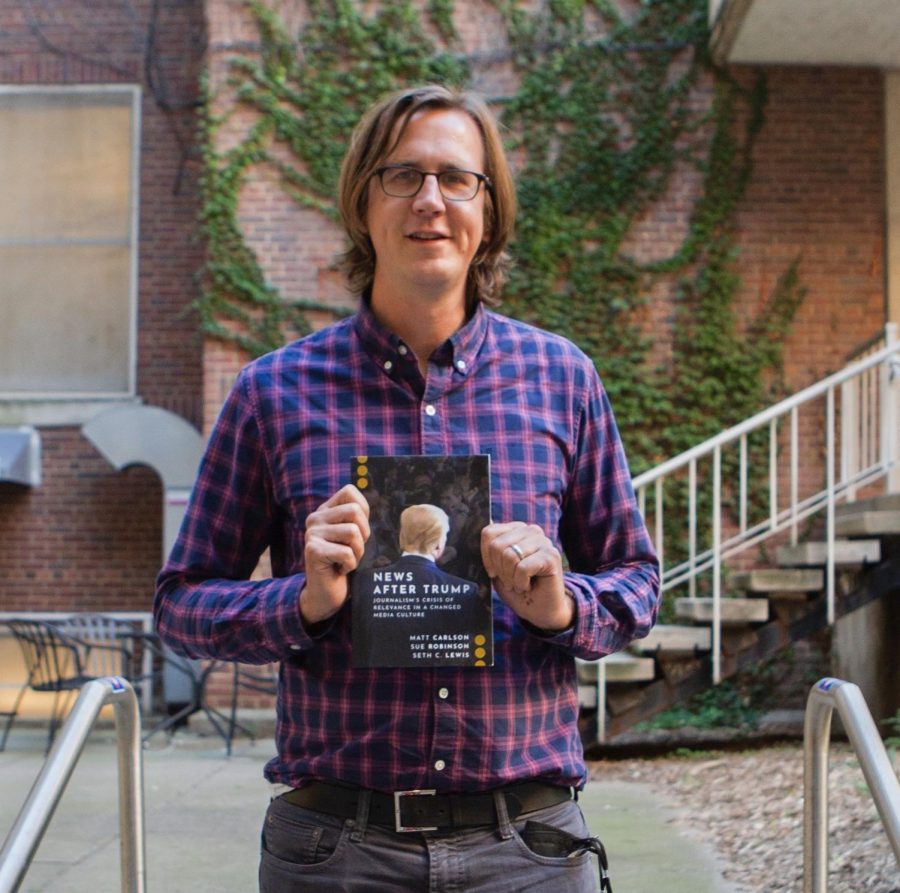
Ethan Fine
UMN Professor Matt Carlson poses for a portrait with his new book, "New After Trump," on Tuesday, Oct. 26.
Matt Carlson and his co-authors gathered Friday to discuss what Trump’s presidency revealed about the current state of journalism, which is the main subject of their new book, “News After Trump: Journalism’s Crisis of Relevance in a Changed Media Culture.”
Held by the University of Minnesota’s Hubbard School of Journalism & Mass Communication, the virtual event offered Carlson and his co-authors, Sue Robinson and Seth C. Lewis, a space to walk the audience through his book’s introspective study of journalism’s current state before diving into a Q&A with all three authors.
The book argues that journalists should learn how to take a moral stance in the age after Trump if they want to maintain relevancy and that morality does not necessarily compromise objectivity.
“We’re not advocating that journalists take a stance on abortion or gun control or something like that, rather we tie morality to facts,” Robinson said in a separate interview.
The authors explained that rather than changing the media landscape himself, Trump acted more as a catalyst as he laid bare journalistic patterns that had been in effect for a while before the 2016 election, specifically patterns of decentralization and lack of trust in institutions caused by the internet’s effect on media culture.
“[The internet] has made journalists have to compete for attention, compete for agenda setting power, with everybody from influencers and content creators to politicians, like Trump, who are essentially their own kind of media machine,” Lewis said at the event.
This attention competition increased the media’s horse-race reporting of elections and played right into the hands of Trump, who had a habit of saying the kinds of radically false and racist comments that grab headlines, Lewis said.
“When we say Trump, we mean a conglomeration of other actors as well,” Carlson said at the event while explaining that Steve Bannon, Andrew Breitbart and Rush Limbaugh are among those who have played similar roles in the media.
Moving forward, the authors said that all the media conditions that allowed Trump are still around and that if journalists want to maintain relevance in this climate, they must learn to exercise morality in their reporting. Carlson said he is hopeful for the future.
“I think the journalists that are coming of age in this time of Donald Trump are in a better position to shape what news looks like,” Carlson said. “To exercise our moral voice when they need to, and to bring in their own perspectives when it’s helpful for telling a story.”
